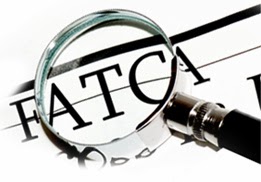 On Monday, February 10, 2014, we posted U.S. Signs FATCA Agreements with Canada and Hungary, where we discussed that the Treasury Department announced February 5, 2014 Canada and Hungary to implement the Foreign Account Tax Compliance Act, or FATCA, in an effort to discourage offshore tax evasion.
On Monday, February 10, 2014, we posted U.S. Signs FATCA Agreements with Canada and Hungary, where we discussed that the Treasury Department announced February 5, 2014 Canada and Hungary to implement the Foreign Account Tax Compliance Act, or FATCA, in an effort to discourage offshore tax evasion.
The agreement is of the Model I type under which Canadian banks will report the affairs of their American clients to the Canada Revenue Agency (CRA). The CRA will then forward the information annually to the US Internal Revenue Service.
This arrangement is similar to that adopted by the five main European countries early in 2012. It also includes reciprocal information exchange provisions under which US banks will have to report their Canadian clients' doings to the CRA.
Many Canadian-resident individuals, corporate entities and trusts qualify as US persons for taxation purposes, and are thus subject to FATCA's reporting requirements. Estimates indicate that one million US citizens live in Canada, and in the 2011 National Household Survey more than a quarter of a million Canadians identified themselves as immigrants from the US. This makes it especially difficult for Canadian financial institutions to identify their American clients, as required by FATCA.
However, it has taken a considerable time for Ottawa to agree to implement the act. The Ottawa government now claims to have obtained significant concessions when negotiating the new inter-governmental agreement, which is officially designated part of the existing Canada-US Tax convention, including:
1. The FATCA withholding tax (a 30 per cent deduction from US-sourced income) will not apply to clients of Canadian financial institutions.
- It will only be imposed on Canadian financial institutions that are in 'significant and long-term non-compliance' with their obligations under the agreement.
- Canadian institutions that are compliant will not be subject to withholding, and they will not be required to close the accounts of 'delinquent' US taxpayers.
2. Several exemptions from FATCA reporting have also been negotiated. These include:
- registered retirement savings plans and income funds, registered disability savings plans and tax-free savings accounts. Previously, the IRS did not recognize these savings vehicles, instead taxing them as offshore trusts.
- Smaller savings institutions, such as credit unions, with assets of less than CAD175 million will also be FATCA-exempt.
- Pension plans are included as exempt beneficial owners. The Investment Funds Institute of Canada said the concessions obtained by Ottawa will 'benefit the millions of Canadians who hold mutual funds in these types of plans'.
Ottawa has been careful to portray the new agreement as merely a Tax Information Sharing Deal, and not an imposition of US law on Canada.
 888 882-9243 FREE FREE end_of_the_skype_highlighting end_of_the_skype_highlighting)
888 882-9243 FREE FREE end_of_the_skype_highlighting end_of_the_skype_highlighting)Sources
- Canadian Federal Department of Finance
- KPMG
- IFIC
- Toronto Globe and Mail
- Bloomberg
- Canadian Federal Department of Finance (legislation)
- See more at: http://www.step.org/canada-signs-model-i-fatca-agreement?j=610675&[email protected]&l=346_HTML&u=14474954&mid=1062735&jb=0#sthash.6EMm34hs.KBrpyazC.dpuf
Sources
- Canadian Federal Department of Finance
- KPMG
- IFIC
- Toronto Globe and Mail
- Bloomberg
- Canadian Federal Department of Finance (legislation)
- See more at: http://www.step.org/canada-signs-model-i-fatca-agreement?j=610675&[email protected]&l=346_HTML&u=14474954&mid=1062735&jb=0#sthash.6EMm34hs.KBrpyazC.dpuf
Sources
- Canadian Federal Department of Finance
- KPMG
- IFIC
- Toronto Globe and Mail
- Bloomberg
- Canadian Federal Department of Finance (legislation)
- See more at: http://www.step.org/canada-signs-model-i-fatca-agreement?j=610675&[email protected]&l=346_HTML&u=14474954&mid=1062735&jb=0#sthash.6EMm34hs.KBrpyazC.dpuf
Sources
Canadian Federal Department of Finance
KPMG
IFIC
Toronto Globe and Mail
Bloomberg
Canadian Federal Department of Finance
Read more at: Tax Times blog





